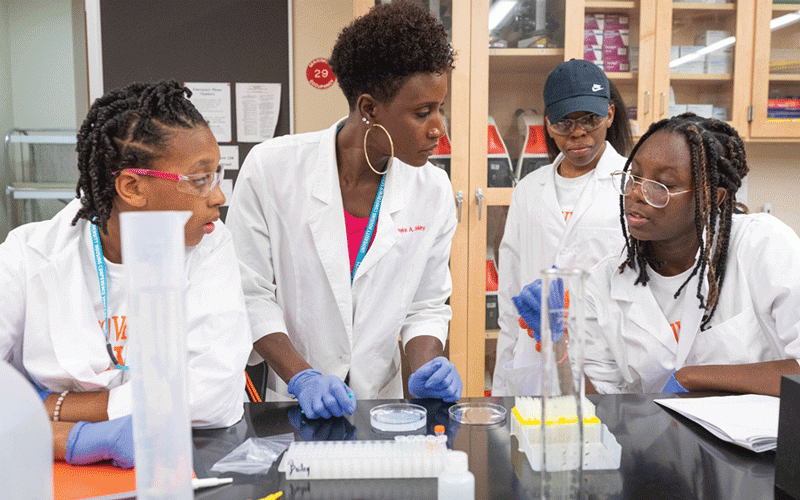
Cultural barriers have long been a hindrance to the full participation of women in science and technology.
In many societies, particularly in Africa, women face unequal access to education, limited career prospects and societal expectations that clash with their ability to thrive in science and technology fields.
As a result, we see unequal representation of women in many science, technology, engineering and mathematics (STEM) fields, which has not only robbed us of the talents and contributions of women, but also led to social and cultural stagnation.
One of the significant barriers to women's participation in science and technology is the pervasive stereotyping of gender roles.
Many societies typically assign household responsibilities and caregiving roles to women, leaving little or no time to pursue a career in STEM fields.
These stereotypical gender roles have led to a perception that men are often better suited for technical jobs than women, leading to unequal hiring practices and biased promotion systems.
Low enrolment of girls in science and technology courses also hinders women's participation in science and technology.
In many societies, it is still perceived that science and math are exclusively male-dominated fields.
- Chamisa under fire over US$120K donation
- Mavhunga puts DeMbare into Chibuku quarterfinals
- Pension funds bet on Cabora Bassa oilfields
- Councils defy govt fire tender directive
Keep Reading
This perception often leads to reduced confidence in female students and a reluctance to pursue STEM degrees and careers.
According to McGee and Bentley, careers in STEM fields are widely acknowledged as central to the future; women, especially, black remain underrepresented in most of these fields.
Speaking at the 6TH Transform Africa Summit in Victoria Falls early this year, International Telecommunication Union (ITU) secretary general, Doreen Bogdan-Martin said the economic emancipation of the African continent heavily depends on the inclusion of women in STEM as women are underrepresented in the digital making processes.
Moreover, women working in technical fields are often subjected to sexual harassment and gender-based discrimination, leading to stress and mental health problems.
This systemic, toxic culture in some workplaces further discourages women from pursuing their careers in such fields.
Besides, many cultures hinder women's mobility, making it challenging for women to travel and attend training or conferences.
This, therefore, limits their access to networking opportunities, internships and collaborations.
The lack of adequate support systems, such as childcare services and parental leave, further complicates the participation of women in STEM fields.
Subsequently, creating an inclusive environment is crucial to closing the gender gap in science and technology.
One of the starting points is to challenge the stereotyped thinking of gender roles.
It's time we encourage girls and young women to take an interest in STEM fields and support their participation.
We must create enabling environments in schools and workplaces to foster the aspiration of girls and women to full participation in science and technology fields.
We also need to continue to push for policies that promote equal access to education and training Access to these opportunities will equip women with vital skills in STEM fields and allow them to compete for jobs on an equal footing with male colleagues.
Furthermore, addressing the lingering issue of sexual harassment and gender-based violence in the workplace is less
We must have stronger policies, training, and enforcement mechanisms to address this issue head-on.
This will make the workplace a safer, supportive, and welcoming space for women.
Cultural changes take time, but we must remain vigilant and continue to demand change.
We must confront biases wherever they exist, hold leaders accountable and drive change through collective activism. We must stand together, amplify the voices and visions of women in science, and elevate their contributions to our collective advancement.
Recently, Zimbabwe's President Emmerson Mnangagwa appointed Tatenda Mavetera as the first minister of ICT in the country, chances are high that she may come up with new policies and ideas that uplift women's participation in the ICT sector.
Women’s full participation in science and technology particularly in Africa is essential for our collective advancement as a nation.
Yet, cultural barriers continue to prevent many women from making their mark in these critical fields. Addressing these barriers requires a multifaceted approach that includes policy and cultural changes, education, leadership, mentorship, and advocacy.
By working towards inclusivity, we can build a more equitable world where all women can reach their full potential in science and technology.
- Donald Nyandoro is a journalist, who writes in his capacity. For feedback email: [email protected] or call 0733667708 and Twitter @DonNyandoro






